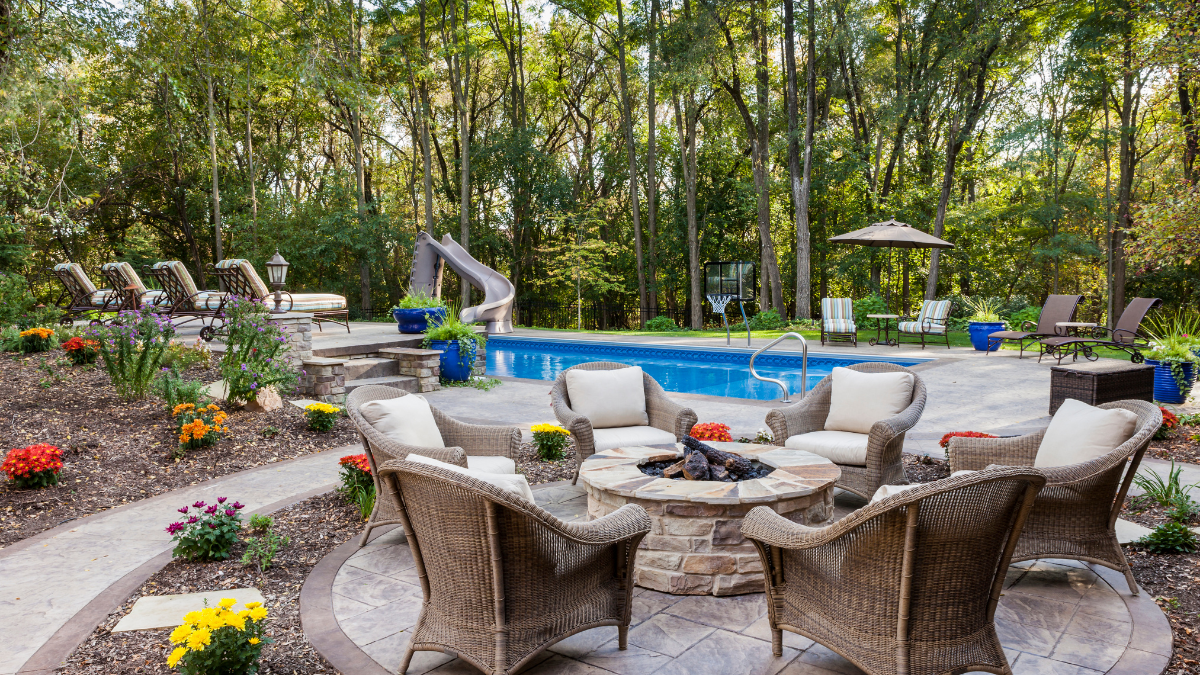Essential Elements of a Modern Landscape Installation
Modern landscaping utilizes clean lines, minimalist forms, and sustainable, low-maintenance plants to create a functional and aesthetically pleasing outdoor space.
In order to create an outdoor space that is both aesthetically pleasing and useful, modern landscape design integrates sustainability, functionality, and clean aesthetics. A modern landscape installation is characterized by its intentionality, minimalism, and integration with the surrounding architecture, in contrast to traditional gardens that may appear crowded or overgrown. Here are the key components of a truly modern design if you want to turn your yard into a sleek, elegant addition to your house.
Simple Forms and Clean Lines
Geometric shapes and strong, clean lines are the cornerstones of contemporary landscaping. This method produces a visually pleasing and incredibly practical sense of calm and order.
- Hardscaping: Consider large rectangular pavers, straight walkways, and well-organized patio areas. A sense of permanence and simplicity is frequently achieved by using materials like steel, smooth-cut stone, and poured concrete.
- Structured Planting: Rather than growing in haphazard clusters, plants are frequently placed in bold masses or linear beds. With an emphasis on form, texture, and color, this methodical approach emphasizes the plants as design elements.
- Symmetry and Repetition: To establish rhythm and harmony, modern design frequently employs repetition of elements, such as a row of columnar trees, a pattern of paving stones, or a series of identical planters.
Combined Water and Lighting Features
In order to blend the landscape with your house and create a sense of mood and atmosphere, lighting and water are essential.
- Integrated Lighting: Contemporary designs employ discrete, integrated lighting in place of standalone lanterns. Consider strip lighting along stairs or seating areas, low-profile path lights, and uplights to draw attention to trees or architectural details. The objective is to produce a gentle, welcoming glow that keeps the area usable into the evening.
- Features of Water: Most contemporary water features are sculpture-like and minimalist. A single sheet of water running over a concrete wall, a basin with a clean edge, or a set of basic bubblers could all be examples of this. Without the visual clutter of conventional fountains, the sound of the water adds a soothing, natural element. Check out sites like Houzz for additional ideas on contemporary water features.
Intentional and Sustainable Plant Selection
One of the fundamental principles of contemporary design is sustainability. The form, texture, and resilience of the plants are carefully considered when selecting the color scheme.
- Native and Drought-Tolerant Plants: Succulents, ornamental grasses, and native species that are climatically suited to the area are examples of plants that typically require little water in a modern landscape. As a result, less maintenance and irrigation are required.
- Focus on Texture and Form: Modern design emphasizes distinctive plant forms (such as spiky yuccas and columnar evergreens) and intriguing textures (such as feathery grasses and smooth river stones) rather than a riot of color. Intentional placement and contrast are used to generate visual interest.
- Minimal Upkeep Options: The choice of plants should encourage a less maintenance-intensive way of life. Slow-growing plants, evergreen shrubs, and a decrease in high-maintenance turf areas are frequently examples of this.
Did You Know?
Did you know that you can cut your outdoor water use by up to 50% by installing a contemporary, high-efficiency irrigation system with smart controllers?
A modern landscape installation is an investment in your property’s value, functionality, and sustainability. By embracing clean lines, intentional design, and a focus on low-maintenance, high-impact elements, you can create a tranquil, stylish outdoor retreat. For a consultation on transforming your yard into a modern masterpiece, call Scenic Outdoors at (770) 287-4348.



